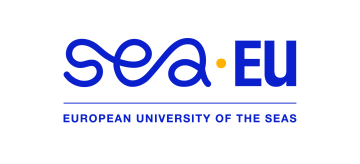ORCID ID: 0000-0002-1802-8699
After completing the Ph.D. studies in the University of Cádiz (1984) he did a postdoctoral stay with A. E. Martell (Texas A&M University, 1987-88). He is full professor of Inorganic Chemistry since 2004. He is a member of the Spanish Royal Society of Chemistry and the Spanish Association of Bioinorganics (in the latter case he served as the president between 2013 and 2017). His research focuses on kinetico-mechanistic studies of reactions involving different types of metal complexes. He has published more than 100 papers in international journals, has been the principal investigator in 8 research projects funded at a national level, and he has received a positive evaluation for six research periods.
The work of the group focuses on the thermodynamic and kinetic aspects of the reactions of inorganic compounds in solution. The work includes from simple reactions, as the formation and substitution processes, to more complex processes as molecular reorganizations, the formation and reactivity of dihydrogen complexes, the reactions of M3S4 clusters (M= Mo, W), or catalytic processes as the semihydrogenation of alkynes or the oxidation of organic compounds catalyzed by metal complexes which act as models of nonheme oxygenases.
Kinetico-mechanistic study of reactions involving metal clusters
Kinetico-mechanistic study on the activation of dihydrogen and reactions of dihydrogen complexes
Kinetic and computational studies of inorganic reaction mechanisms
Kinetico-mechanistic studies of inorganic reactions
Kinetico-mechanistic study of reactions involving metal complexes with polyamine ligands
Solution behavior of inorganic species, with special attention to their stability and kinetico-mechanistic aspects of their reactions. Current studies focus on metal complexes with polyamine ligands and dihydrogen complexes.
Mechanism of activation of dioxygen and related species: kinetics, detection and reactivity of intermediates.
The group has developed a methodology that can be applied with minimal changes to different types of reaction. It consists in a combination of experimental techniques, which include stopped-flow with sequential mixing and low temperature capabilities, global methods for the analysis of the kinetic data, and computational studies. The combination of these advanced kinetic studies, which include the reactivity at low temperature of unstable intermediates, with computational energy profiles lead to solid proposals for the reaction mechanism.
Gonzálvez, Miguel A.; García-Algarra, Andrés; Garcia-Basallote, Manuel; Bernhardt, Paul V.; Fernandez-Trujillo-Rey, Maria Jesus; Martínez, Manuel
Dalton Transactions (2019) Vol: 48. Pgs: 16578-16587
Serrano-plana, Joan; Acuña-parés, Ferran; Dantignana, Valeria; Oloo, Williamson N.; Carmen E. Castillo; Draksharapu, Apparao; Whiteoak, Christopher J.; Marin-diaconescu, Vlad; Basallote, Manuel G.; Luis, Josep M.; Que Jr., Lawrence ; Costas, Miquel; Company, Anna
Chemistry: A European Journal. 2018. Vol: 24. Pgs. 5331-5340.
García-Algarra, Andrés; Guillamón, Eva; Andrés, Juan; Fernandez-Trujillo-Rey, Maria Jesus; Pedrajas, Elena; Pino-Chamorro, Jose Angel; Llusar, Rosa; Garcia-Basallote, Manuel
ACS Catalysis. 2018. Vol: 8. Pgs. 7346-7350.
4. Exceedingly Fast Oxygen Atom Transfer to Olefins via a Catalytically Competent Nonheme Iron Species
Serrano-plana, Joan; Aguinaco-Martín, Almudena; Belda, Raquel; Garcia-españa, Enrique; Garcia-Basallote, Manuel; Company, Anna ; Costas, Miquel
Angewandte Chemie, International Edition. 2016. Vol: 55. Pgs. 6310-6314.
5. Mechanism of [3+2] Cycloaddition of Alkynes to the [Mo3S4(acac)3(py)3][PF6] Cluster
Pino-Chamorro, Jose Angel; Gushchin, Artem L. ; Fernandez-Trujillo-Rey, Maria Jesus; Hernandez-molina, Rita; Vicent, Cristian; García-Algarra, Andrés; Garcia-Basallote, Manuel
Chemistry: A European Journal. 2015. Vol: 21. Pgs. 2835-2844.
